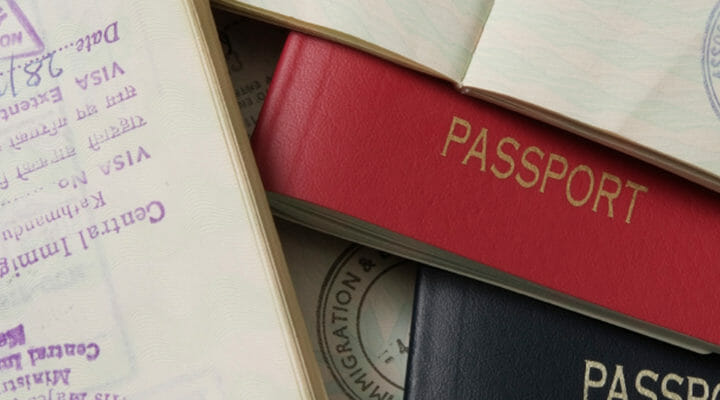One of the benefits of working for the military is job opportunities overseas. And while I can’t speak to the benefits of a contracting job, I can share what I’ve learned from my time in Germany as a Department of the Army civilian. Here’s my take on some common questions and concerns people have about living there.
The Money
Can I afford living in Germany? Yes, you can. There’s no question the dollar suffers in comparison to the Euro, but the government accounts for the fluctuating exchange rate. You’ll have a regular salary with cost-of-living adjustments, and – unlike stateside jobs – they’ll give you a living quarters allowance to cover your rent. And since it’s expensive to shop on the economy, DA civilians are allowed to shop at the commissary and post exchange. As a bonus, you’ll get gas rations so you don’t have to pay the expensive fuel prices. Also, most positions will pay for your belongings and one vehicle to be shipped to Germany. It’s also possible to borrow government furniture (most German living quarters don’t have closets) for the entire time you’re stationed there.
The government does a great job of setting you up for success financially, so as long as you spend wisely and don’t have a lot of extra financial obligations it’s possible to live a comfortable lifestyle overseas.
The Language Barrier
One of the most common questions I get about living overseas is: How did you work there if you don’t speak German? Believe it or not, it is possible to get by on little-to-no German depending on where you live. In major cities, you shouldn’t have any trouble getting by with English. In the smaller countryside towns you may struggle a bit, but a little German goes a long way. I recommend looking into a basic German class so you can say pleasantries, order meals and buy pastries. Trust me, you’ll want to buy pastries.
Employment
DA civilians who are hired to work in Germany typically sign a three-year contract with a possibility of extension to five years. If you’re coming from another DA position, you can usually work in “return rights” so when your contract is up, you return to your previous job in the US. You may have heard of people staying upwards of 20 years or beyond, but that’s becoming less common. Many headquarters are enforcing the five-year rule, so don’t accept a job there with the intention of staying a decade. The range of job possibilities in Germany is very similar to what you’d find in the states because they have fully-functional garrisons, training areas and a large full-service hospital near Landstuhl. And while this is geared toward DA civilians, there are contractor jobs that are open including a computer system support analyst, project manager and regional manager.
What about my doctor?
As a DA civilian, you’ll primarily be seen on the German economy. And with smaller Army health clinics, many soldiers and families are seen on the economy as well. Rest assured, the German health care system is world class. I’ve personally been treated in a German emergency room and by a German dentist and had positive experiences both times.
Driving
Many who relocate to Germany are apprehensive about driving there. Despite the fact that people drive upwards of 100 mph on the autobahn, I actually found it much safer than some places I’ve lived in the States. This is probably because the driving test is very detailed and difficult to pass. And once people have their license, they intend to keep it and follow traffic laws. If you live in a larger city, it’s possible to get around with public transportation. However, if you live in Bavaria you’ll probably need a vehicle and a set of winter tires to go with it.
Way of Life
The Germans live a much slower, more relaxed lifestyle than the work-centric American one you’re probably accustomed to living. Stores are closed on Sundays, and the closet thing you’ll find to a Walmart is an Ikea. Don’t bother looking for Chick-fil-A because it’s not there. Many Europeans also take off the month of August to travel and relax so things are extra quiet during that time. However, there are festivals year-round, with the internationally-popular Oktoberfest in the fall, and plenty of good beer and hearty food to ease you into a more relaxed way of life.
Travel
This is by far the best part of living in Germany. It’s possible to take weekend trips either by car, plane or train to places all over Europe. There are budget-friendly airlines like Ryanair or Germanwings that make flying an affordable option, even with a large family. There’s usually a four-day weekend each month for soldiers, so save up your leave time and take advantage of the long weekends.
Overall, living in Germany can be an amazing experience. By spending wisely and keeping an open mind, you’ll have time to enjoy the culture and travel to new places.


